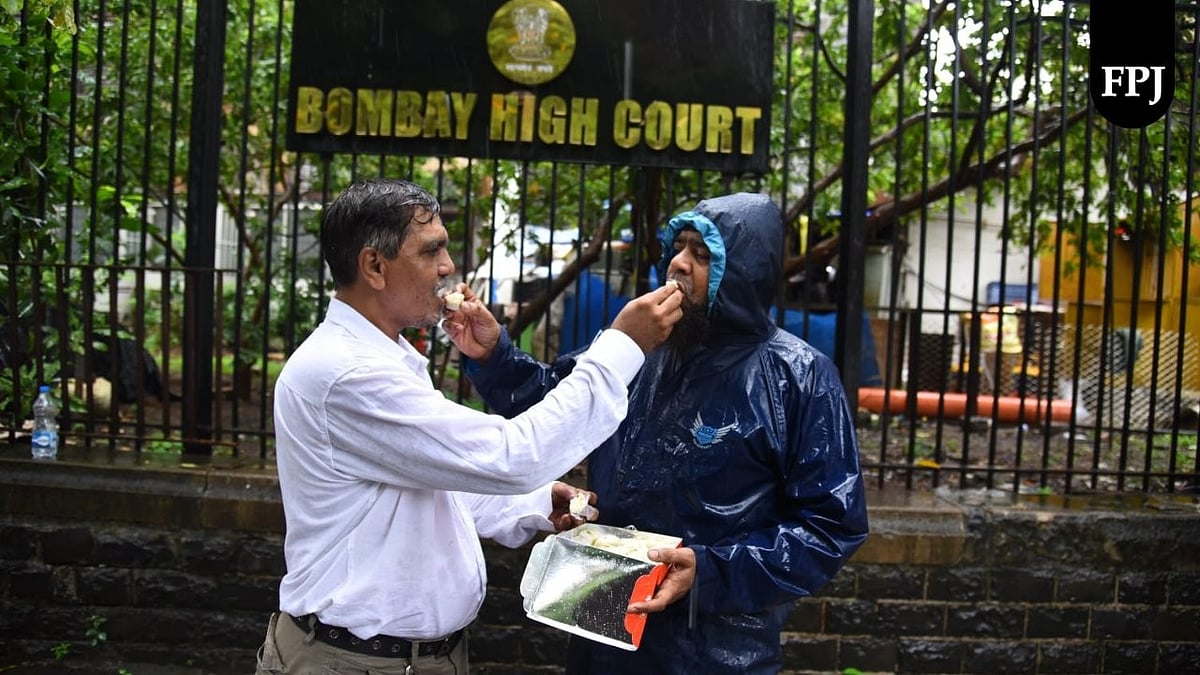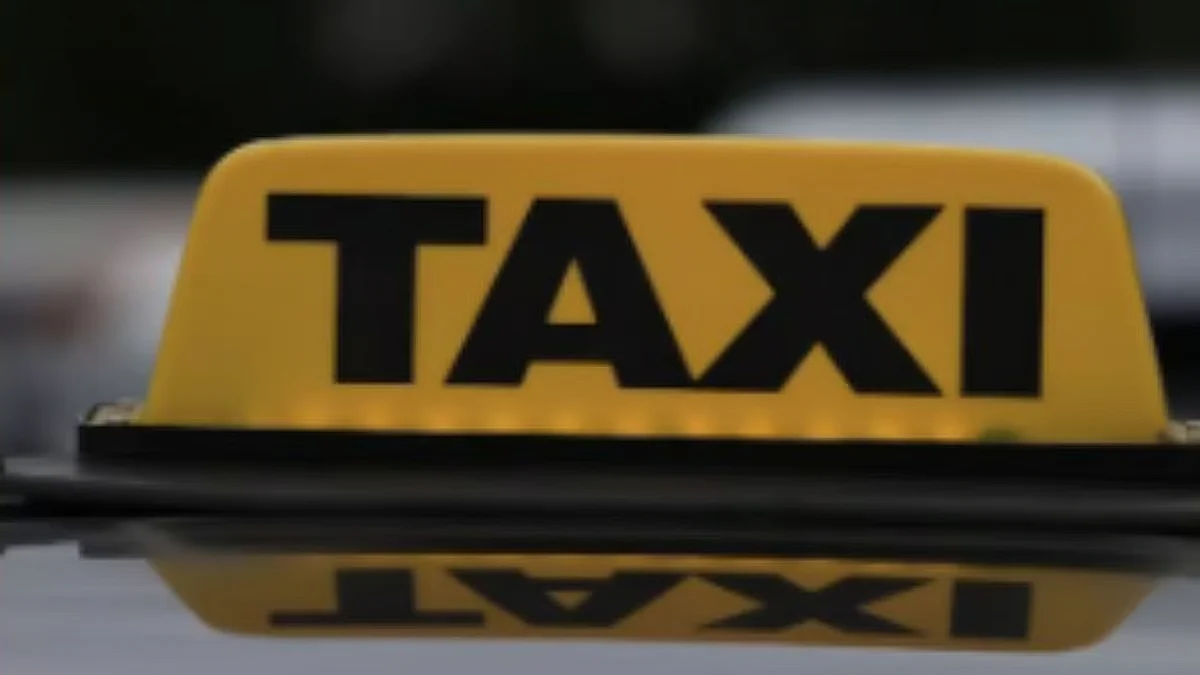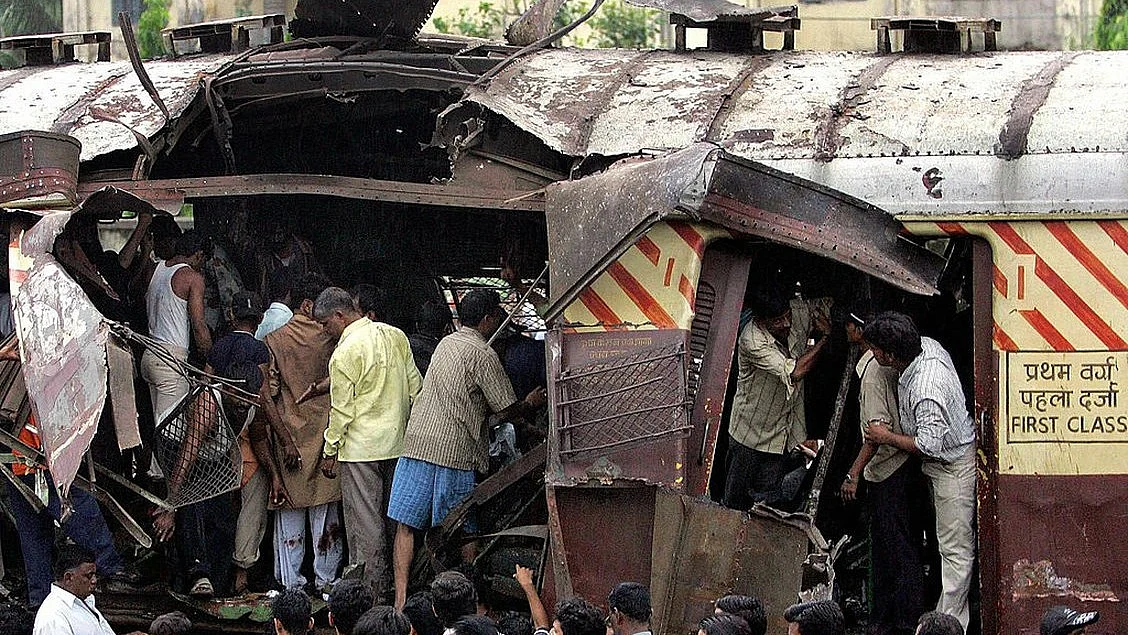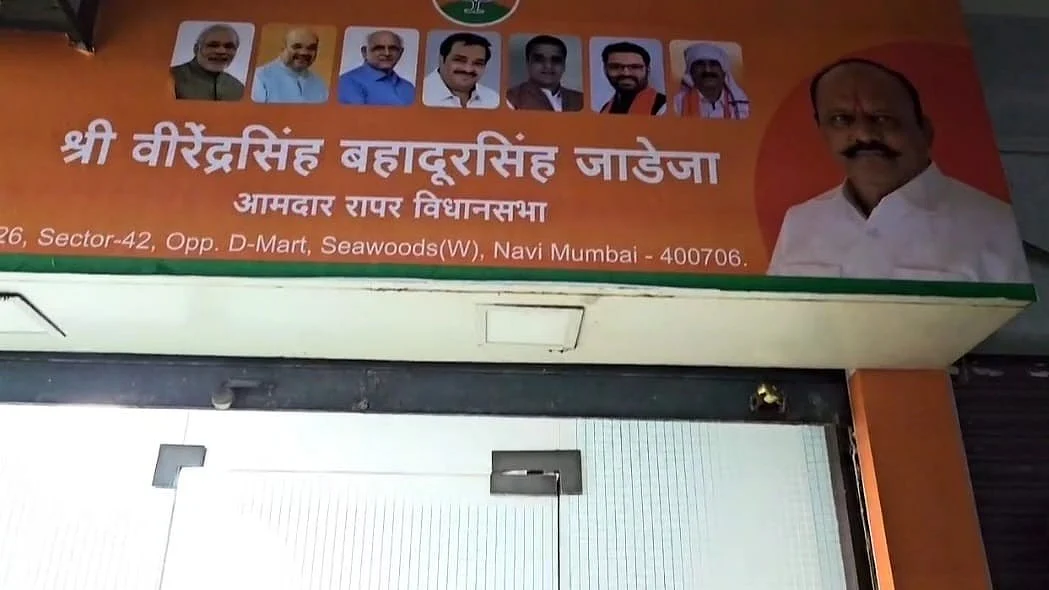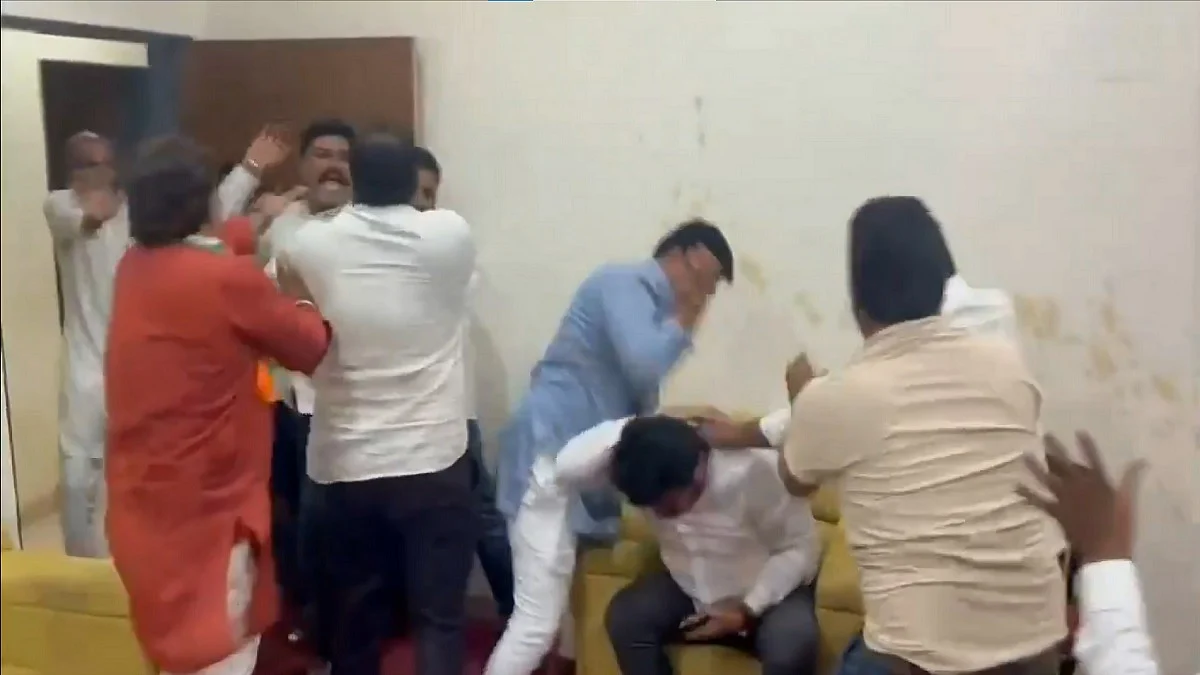Outside the imposing gates of the Bombay High Court, tears flowed freely. Not in grief, but in overwhelming relief. For the families of the 12 men acquitted in the 2006 Mumbai train serial bomb blasts case, Monday marked the end of a 19-year-long nightmare and the beginning of reclaiming lost time.
Amid monsoon showers and nearly two decades of clouded hope, two men stood outside the iconic gates of the Bombay High Court, feeding each other sweets, their hands trembling, clothes drenched, but spirits unbroken. This was not just a moment of celebration. It was a moment of vindication.
The image of family members exchanging sweets outside the court hours after the Bombay High Court acquitted all 12 men convicted in the 2006 Mumbai train serial blasts case, one of the deadliest terror attacks in the city’s history.
The 2006 train bombings had left 189 dead and over 800 injured, and sparked one of the largest anti-terror crackdowns in Maharashtra. In 2015, 12 men were convicted under the Maharashtra Control of Organised Crime Act (MCOCA). But on Monday, the High Court noted multiple investigative lapses, from coerced confessions and unreliable witness statements to mishandled forensic evidence, in throwing out the entire case.
Outside the courtroom, the mood shifted from decades of silent anguish to loud celebration.
The court’s remarks were scathing, noting that the prosecution had utterly failed to prove the case and raised questions about the functioning of investigative agencies in high-stakes terror cases.
The photo of the two men feeding each other sweets against the backdrop of the Bombay High Court signboard, soaked in Mumbai’s relentless rain, has now come to symbolize more than just legal victory, it reflects the painful journey of reclaiming dignity after being branded as a terrorist for nearly 7,000 days.
